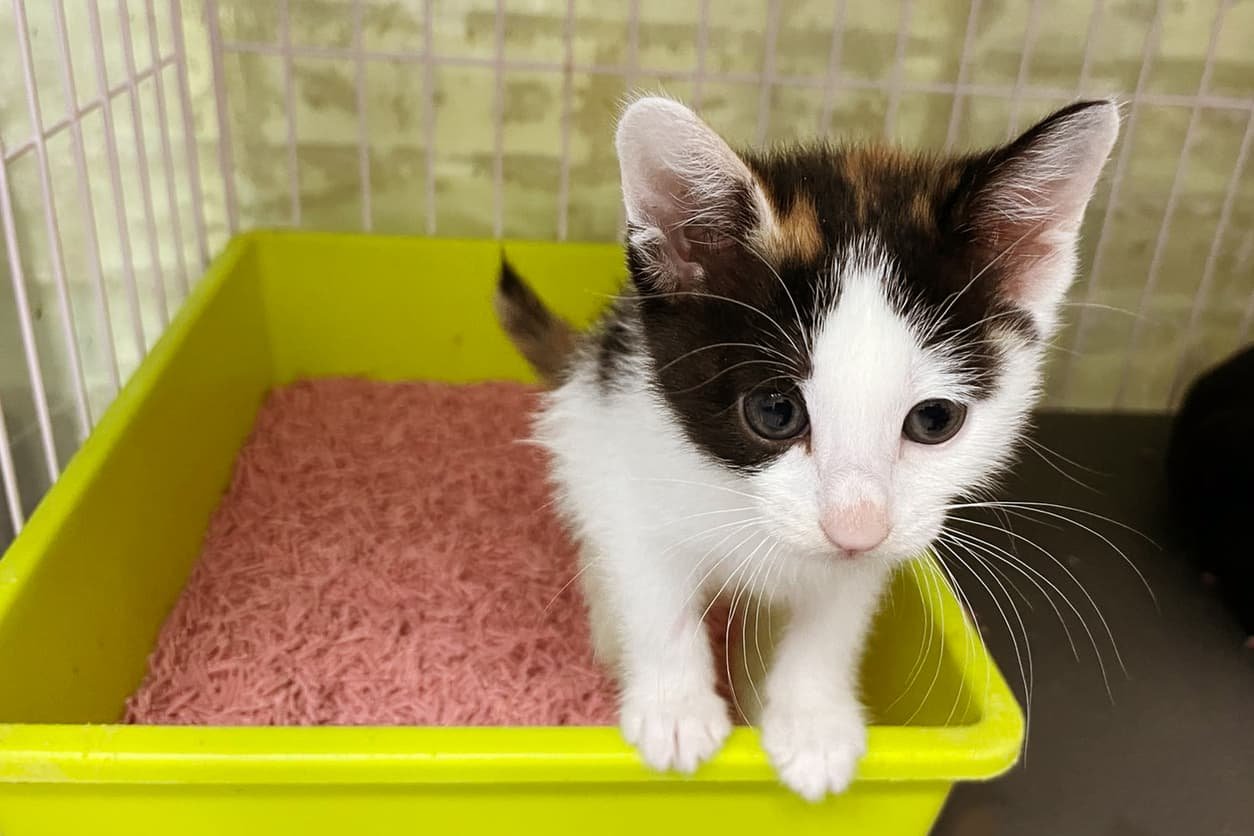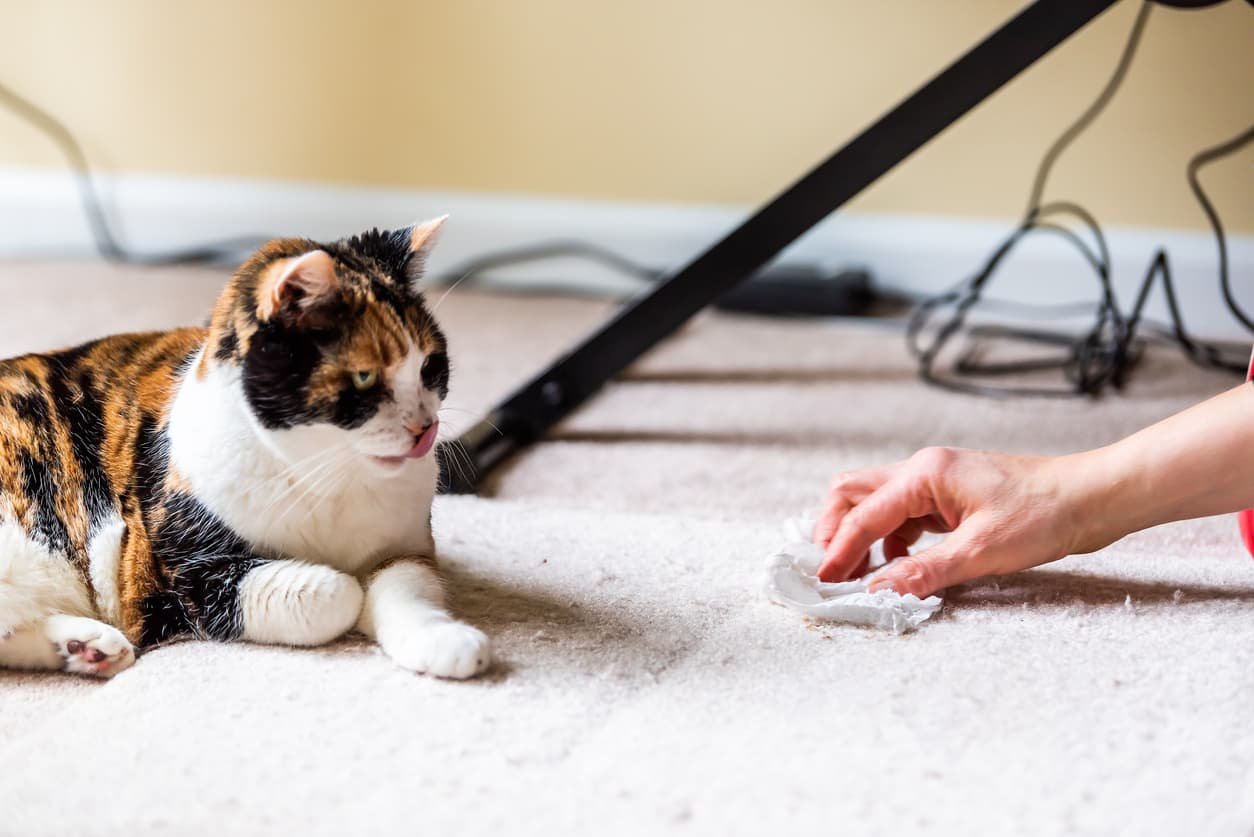Welcoming a cat into your life is an exciting and fulfilling experience. Cats are known for their playful antics, independent nature, and loving companionship. However, proper care is crucial to ensure your feline friend thrives in their new home. In this guide on cat care for beginners, we’ll cover everything you need to know to provide the best care for your new pet.
Table of Contents
Toggle1. Selecting the Ideal Cat:
The Initial Step to a Contented Life TogetherSelecting a cat that fits in with your family’s dynamics and lifestyle is the most crucial step in beginning a new cat journey. Knowing what your adopted cat needs to live a healthy and happy life is crucial, regardless of whether you’re adopting an adult cat, an older cat, or a young kitten. Depending on their breed and age, domestic cats have varying energy levels, grooming requirements, and health problems. For instance, frequent brushing is necessary to prevent matted hair and possible skin issues in long-haired cats.
Beginners would be well advised to seek advice from a nearby nonprofit or shelter. Based on their preferences and living conditions, these experts assist pet owners in selecting the ideal cat. Indoor cats may be the best option if you live in an apartment, but families with more room may want to think about outdoor cats as well, provided they are watched over and kept in a safe environment.
When you visit shelters or rescues, always inquire about pet care. The staff can share the cat’s medical history and offer you advice on how to take care of your pet. Adoption contributes to population control efforts and the creation of a more compassionate world in addition to providing your new feline friend with a forever home.
2. Making Your New Cat Friend's Space Safe
Establish a safe haven where your new pet can feel at ease and secure before they arrive. For novices, this is one of the most crucial aspects of cat care. Particularly in the initial days and weeks, a secure setting lowers stress and encourages healthy behavior.
To create a special space, provide a comfortable bed, a scratching post, litter boxes, bowls for food and water, and a variety of toys. Indoor cats can be exercised and their innate climbing instincts can be encouraged with cat trees. A cat water bowl or fountain should ideally be placed in a convenient location where fresh water is always available.
Don’t use glue boards or put dangerous objects close to your cat’s surroundings. Keep toxic materials and human food out of reach. Create hiding places for your cat using cardboard boxes or cozy blankets so they have a place to go when they’re feeling nervous. This is particularly beneficial for a nervous adult cat or a new kitten adjusting to their new home.
One of the first things a responsible cat owner should do is make a cat carrier. Use the carrier to safely take your cat to the veterinarian and to help them get used to traveling at a young age. To help ensure population safety and your pet’s return, attach an ID tag to your cat’s collar in case they escape.
3. Cat Food: Nutritious Ideas for a Balanced Diet
Your cat’s long-term health and vitality depend on the food they eat. Being a responsible cat owner includes knowing the distinctions between commercial cat food, wet food, and dry food. Wet food helps with hydration, particularly if your cat doesn’t drink enough fresh water from the water bowl or cat water fountain, but dry cat food is helpful and excellent for dental health.
Young kittens should always be fed premium food that supports their quick development and growth. To avoid digestive health issues, gradually switch your cat to adult cat food as they get older. Special formulas that address joint care and aging-related health issues may be beneficial for older cats.
To avoid obesity, which can result in major diseases like diabetes or testicular cancer in male cats and uterine infections in female cats, maintain a balanced diet and practice portion control. Avoid feeding your cat human food as this can lead to serious behavioral and health problems.
To prevent food aggression, feed your cats separately if you have more than one. To stop bacteria from growing, keep their food and water bowls clean. To rule out feline leukemia virus or other illnesses, make an appointment with your veterinarian if you observe any changes in appetite or vomiting. By covering unforeseen veterinary expenses, pet insurance can provide cat owners with peace of mind.
Always choose premium cat food with accurate nutrition labels, and for individualized feeding recommendations, speak with your veterinarian. The best way to keep your cat happy, healthy, and active every day is to feed them a nutritious diet.
4. Grooming and Hygiene: Maintaining a Clean and Cozy Cat
Despite their innate cleanliness, cats still require routine grooming to maintain their comfort and well-being. Frequent brushing helps control shedding and minimizes hairballs, especially in cats with long hair. While long-haired breeds may require daily care, short-haired cats can get by with a quick brushing once or twice a week.
Grooming should be a bonding activity for new cat owners. For softer strokes, use a grooming glove or a brush with soft bristles. This is the most effective method of looking for injuries, lumps, or fleas. Additionally, grooming eases stress and improves your bond with your new feline companion.
One of the most crucial aspects of cat care that is frequently disregarded is dental care. Using toothpaste that has been approved by a veterinarian to brush your cat’s teeth can help to maintain dental health and prevent gum disease. To help keep your cat’s mouth clean, pair this with dental treats or toys.
Regular claw trimming is necessary for indoor cats in order to minimize furniture damage and prevent overgrowth. To help your cat maintain healthy claws naturally, give them a scratching post or cat trees. Keeping your cat active and stimulated with cat toys can also help reduce behavioral issues.
Always keep the litter box clean. To avoid odors and health issues, replace litter once a week and scoop waste every day. To find out what your cat prefers, try a variety of litter types. There should always be more litter boxes than there are cats in the house.
5. Keeping an eye on your cat's health through health monitoring and veterinary examinations
You must keep an eye on your cat’s behavior and appearance every day to maintain their health. Health problems may be indicated by changes in eating patterns, bowel habits, or energy levels. If you suspect a problem, don’t wait to see a veterinarian.
A beginner’s guide to cat care must include vaccinations, which offer defense against dangerous diseases like feline leukemia virus. Additionally, your veterinarian will recommend routine flea and deworming treatments. In addition to preventing unwanted litters, spaying or neutering your cat lowers your risk of testicular cancer and uterine infections.
With an annual examination, your veterinarian can help detect health issues early and update your cat’s medical records. Biannual visits may be necessary to manage aging issues in older cats. In order to keep your pet healthy, your veterinarian can also offer advice on diet, dental care, and exercise regimens.
Make sure the carrier is comfortable for your feline. Bring a blanket or a favorite toy, and line it with soft bedding. You can stay organized by giving your veterinarian clinic your U.S. mobile number so they can send you recurring text messages to remind you of immunizations and appointments.
Because it covers both routine care and emergencies, pet insurance can literally save lives. You won’t ever have to decide between your financial stability and the health of your closest friend if you have the proper coverage.
6. Play and Enrichment: Activating Your Cat's Mind and Body
Maintaining your cat’s mental and physical activity lowers the likelihood of behavioral problems and guarantees a happy life. To keep your new kitten or adult cat interested, use a range of toys, such as treat puzzles, feather wands, and interactive laser toys.
Your cat can climb, stretch, and mark territory with the aid of cat trees and scratching posts. These buildings also offer a secure area for observation and relaxation. To keep things interesting and avoid boredom, switch up the toys once a week.
The best part of cat care is play, which enhances coordination, helps you control your weight, and deepens your relationship with your pet. Scheduled playtime helps indoor cats mimic their natural hunting behavior and lower anxiety.
Make window perches for your cat to observe outdoor activities and birds. Silvervine or catnip are examples of scent-based enrichment that can be used to stimulate. Just make sure there are no choking hazards in your cat’s surroundings.
Every family member should participate in playtime. It reinforces your cat’s place in the family and is a great place to teach kids how to treat small pets with respect. Play is the key to a healthy, happy cat.
7. Socialization and Conduct: Bringing Up an Outgoing, Self-Assured Cat
Your cat’s interactions with people, other animals, and their surroundings are shaped by socialization. Your cat will adjust to new situations more easily if you start early.
Gradually introduce your new pet to other family members and animals. Give your cat a treat when they act calmly and let them explore at their own speed. Steer clear of tense situations, particularly when interacting with elderly cats who might require more time.
Reward good behavior with positive reinforcement. Your cat can learn to associate new things with safety if you give them toys, treats, and praise. Consult your veterinarian or a cat behaviorist if you observe aggression or withdrawal.
Maintaining a regular routine makes your cat feel more secure. Every day, feed, groom, and play all at once. Make assumptions about their surroundings and make adjustments gradually. Stress or underlying medical conditions may cause your cat to have unplanned outbursts.
Socialization is not limited to kittens. If given the time and affection they require, adult cats—and even older cats—can grow to trust people and love interacting with them. Being a responsible cat owner includes providing your cat with compassionate, understanding care throughout their life.
8. Litter Box Upkeep and Instruction: Promoting Hygiene Habits
One of the most significant turning points in your pet parent journey is teaching your new cat to use the litter box. Fortunately, if you have the proper equipment, training domestic cats is easy because they naturally bury their waste. Your cat will feel safer if the litter boxes are located in peaceful, low-traffic areas. Consistency is key, so try not to move the boxes too often.
Every cat should have access to at least one litter box, plus an additional one. Provide three litter boxes, for instance, if you have two cats. Replace the litter once a week and scoop the trash daily. This promotes cleanliness and lowers the risk of health problems brought on by inadequate sanitation.
To find out what your cat prefers, try clumping, non-clumping, scented, and unscented litter. Certain smells or textures may turn off some cats. Never punish your cat for misbehaving; instead, thoroughly clean the area and think about whether the behavior could be caused by stress, illness, or changes in the environment.
A healthy cat depends on having a clean litter box. It’s also a fantastic way to keep an eye on your cat’s health. Any changes in the quantity, hue, or consistency of waste could indicate issues that need to be addressed by a veterinarian right away.
9. Presenting Your Cat to Kids and Other Pets
Introduce your new cat gradually if there are small children or other pets in the household. Making sure your cat feels safe and unthreatened is the most crucial thing. For quick, controlled introductions with dogs or other cats, use a cat carrier. Give praise and treats to calm behavior as a reward.
Teach family members—children in particular—how to be kind to the cat. Steer clear of loud noises and abrupt movements. Allow the cat to explore new areas at their own pace, but when necessary, take them back to their safe haven. Stress-relieving vertical escape routes are offered by cat trees and hideaways.
Adult cats can occasionally adjust more slowly than kittens. Have patience and maintain an optimistic attitude. Keep an eye out for symptoms of stress, like hiding, acting aggressively, or not wanting to eat. Seek additional assistance from a qualified trainer or feline behaviorist if required.
10. Conscientious Ownership: Providing Lifelong Support for Your Cat
Providing food and entertainment is only one aspect of responsible cat ownership; another is making a commitment to your cat’s long-term health. To guarantee that your cat receives routine checkups and vaccinations, register them with a veterinarian. For extra security, use an ID tag and think about microchipping.
By selecting shelters that share your humane values, you can avoid endorsing unethical practices such as the dog meat trade. Seek out groups that encourage the adoption of companion animals and support humane solutions through population control efforts and pet community hero award programs.
Your cat should always be kept indoors or in a safe outdoor enclosure. Cats kept outdoors are more vulnerable to illness, mishaps, and predators. Your cat will be healthier and have a longer lifespan if they live safely indoors.
Read the most recent news, participate in forums, or get regular texts from reliable sources to stay up to date on animal care. You can stay ahead of possible health issues or care procedures with the help of these updates, which offer continuing education.
How we treat our pets is the first step toward making the world a more compassionate place. Your cat will become your best friend for life if you put love, enrichment, veterinary care, and a nutritious diet first.
Lastly, building a long-lasting relationship
Bringing a cat into your home will make you a lifelong friend who will provide you with love, comfort, and happiness. Your feline friend will flourish if you follow these beginner’s cat care tips: pick the right cat, give them a safe home, feed them a healthy diet, and monitor their health.
Love, patience, and consistency are the best ways to care for a cat. Continue to learn, seek clarification when necessary, and ask questions. Despite the fact that each cat is different, following these tips will give them the best chance at a happy and healthy life.
FAQ
What are the basics of cat care for beginners?
For beginners, cat care includes providing fresh food and water daily, a clean litter box, regular grooming, playtime, vet checkups, and a safe indoor environment. Love, patience, and routine are key to a happy, healthy cat.
How do I create a comfortable space for my cat?
Create a comfy space with a cozy bed, soft blankets, access to food, water, a litter box, and scratching posts. Add hiding spots, toys, and window views. Keep it quiet, safe, and filled with familiar scents.
How can I build a strong bond with my cat?
Build a strong bond by spending quality time together—play, gentle petting, talking softly, and respecting their space. Use treats and consistency to build trust. Patience and daily interaction strengthen your connection over time.
How to take care of a cat as a beginner?
As a beginner, care for your cat by providing balanced food, clean water, a litter box, toys, and regular vet visits. Groom as needed, offer affection, maintain a safe environment, and create a consistent daily routine.
Can you leave a cat alone for a week?
No, it’s not safe to leave a cat alone for a week. Cats need daily food, water, litter box cleaning, and attention. Arrange for a pet sitter or trusted person to check in daily if you’ll be away that long.








